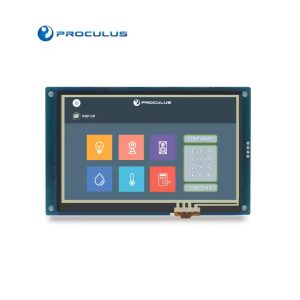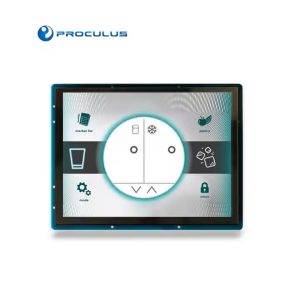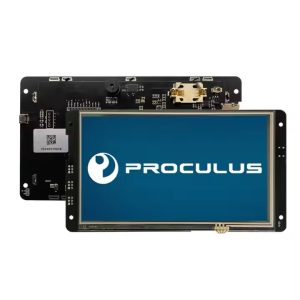From Linux to Android: Revolutionizing the Landscape of Embedded Display
Introduction
Nowadays, embedded display is playing an important role in our lives. From smart homes to medical equipment, intelligent vehicles to industrial automation, embedded systems provide convenience and efficiency in our daily lives and work.
Behind the scenes of embedded systems, the operating system plays a crucial role, and Linux and Android are bringing a new dimension to this field.
Linux: The Robust Foundation for Embedded Systems
Linux, an open-source Unix-like operating system kernel, has made a significant impact in the field of computer science and electronics manufacturer.
Linux provides extensive driver support, allowing developers to interact seamlessly with various hardware components. Its openness and the vast community support create a reliable ecosystem for the development and maintenance of embedded systems.

Advantages of Linux
-
Open Source: Linux is open source, allowing for free customization across various applications.
-
Stability: It’s highly stable and suitable for display technologies and embedded systems.
-
Hardware Support: Linux has extensive hardware support across architectures and devices.
-
Community Support: A vast Linux community offers technical assistance and updates.
-
Customization: Linux can be highly customized for various use cases, including industrial tft display solutions and embedded systems.
Android: Redefining Embedded Systems
As an open-source operating system, Android brings enormous potential to embedded systems. Its flexibility enables developers to customize it according to specific requirements, achieving high adaptability.
Another significant advantage is Android’s rich application ecosystem. This means developers can easily create and integrate various applications, enhancing the functionality and connectivity of embedded devices. Users can interact with the devices through a familiar interface, improving user-friendliness and convenience.

Advantages of Android
-
User-Friendly: Android LCD is designed for consumer devices with a user-friendly interface.
-
App Ecosystem: It boasts a vast app store for easy access to various applications.
-
Multimedia Features: Android excels in audio, video, and graphics, suitable for entertainment devices.
-
Wide Hardware Support: Android runs on diverse hardware configurations.
-
Social Media Integration: Android often integrates social media functions for easy sharing and connectivity.
Relationship between Linux and Android
Android’s kernel is based on Linux, giving it the stability and performance advantages of the Linux kernel. However, Android adopts its runtime environment and application framework to adapt to different use cases.
Therefore, we can consider Android as a derivative of Linux, customized for mobile and embedded devices.

Our Support
At the operating system level, Proculus offers comprehensive support. Starting from the date of purchase, our frontline engineers provide timely support during working hours on workdays, including:
*Supporting users in running the Android system and related interface test programs.
*Assisting with common Android system configurations.
*Providing hardware and software support for customers’ Android products.
If customers require application development based on the Linux system, We offer the following support on Linux:
1. Lubuntu system, which is a version of Ubuntu featuring the LXDE desktop environment.
2. Tailor services for embedded platforms to streamline the system.
3. A series of customized interfaces for operating onboard resource devices.
4. Exporting root filesystem (rootfs), re-packaging, and factory reset functionality.
5. Replace the boot logo and desktop logo.
6. Implement screen orientation, multi-screen rotation, and similar features.
7. Instructions for setting up programs to auto-start on boot.
8. Cross-compiler and system root filesystem (sysroot) for cross-compiling Qt.
Choose Proculus for a seamless and reliable experience in industrial LCD display solutions.

 English
English



